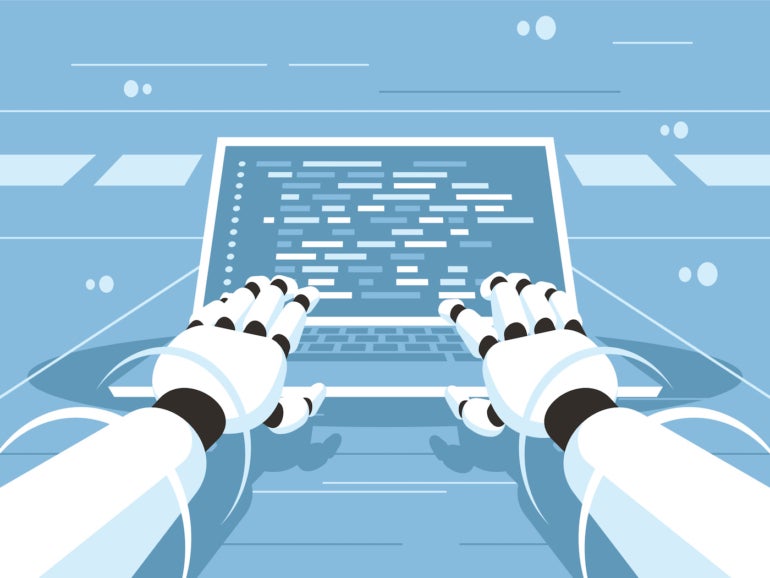Can Generative AI Be Used to Apply for a Job?
We tested out using ChatGPT to write a resume. The result is passable, but human input is still important.

One way to write a resume more efficiently might be to use a generative AI to suggest a format and phrasing. Explore how ChatGPT fares when it comes to writing resumes, how common it is for job seekers to ask for generative AI help and whether AI-written resumes cause problems for hiring software. Google Bard can help with resume writing, too, as can more conventional sites such as Grammarly.
Jump to:
Can I use generative AI to apply for a job?
It’s certainly possible to use AI to write a cover letter or a resume for a job application. You’ll probably want to tweak the results, but it could be a useful resource.
When I asked ChatGPT for a resume template, it provided a conventional, effective template. Some of ChatGPT’s advice seemed basic, so I asked what adjustments it would recommend for a midcareer professional. Its advice was good:
- Replace the objective section with a professional summary.
- Emphasize work experience more than education.
- Remove a section about relevant coursework.
The AI didn’t always follow its own conversation perfectly; for instance, it recommended a midcareer professional add a certifications section, which was already in the template.
SEE: Skills-first hiring aims to make staffing decisions based on the talent someone actually possesses, not their job title. (TechRepublic)
Next, I provided information about my last few jobs manually. ChatGPT wrote an objective section for my resume and added a skills section.
ChatGPT was only as good as the information I provided, but with some tweaks, I can see it providing a good basic template that saves time.
How many job seekers use AI to write resumes?
In a ResumeBuilder.com survey, 46% of job seekers said they used ChatGPT to write their resumes or cover letters.
Beth Noveck, director of the Burnes Center for Social Change at Northeastern University and the GovLab, compared AI-written resumes to traditional templates that show students how a professional resume should look.
“[A resume] is not ‘War and Peace,’” Noveck said in an interview with TechRepublic. “We all copy the format of successful applicants in an industry. Having a good model, having a good template can make all the difference in your ability to apply, and I think that’s important from an equity perspective,” she said.
“Not enough job seekers are using AI just to play around with it and to be able to find different versions of their resume,” Chad Sowash, former recruiter and cohost of the HR industry podcast Chad and Cheese, said. “Whether they’re looking for VP of Marketing or CMO or any type of position, they can come up with really great rough drafts from generative AI.”
How do AI-written resumes fare with applicant tracking software?
MIT Sloan reported in a January 2023 study that using generative AI to write resumes improves job seekers’ chances to be hired by 7.8%. In particular, using the tool improved spelling and grammar.
Applicant tracking software will accept AI-written resumes and may use AI to assess them.
SEE: Should hiring managers use generative AI in their work? (TechRepublic)
Noveck pointed out that 90% of Fortune 500 companies already use automated hiring mechanisms of one kind or another. Algorithms have been in place to run analytics, targeting and discovering candidates for decades. Now, generative AI can fit into an established applicant tracking system, which itself could be made up of a variety of software tools in a tech stack.
“The system can contextualize what’s going on in the resume and whether you go to the next round or not,” Sowash said in an interview with TechRepublic.
For all the latest Technology News Click Here
For the latest news and updates, follow us on Google News.
